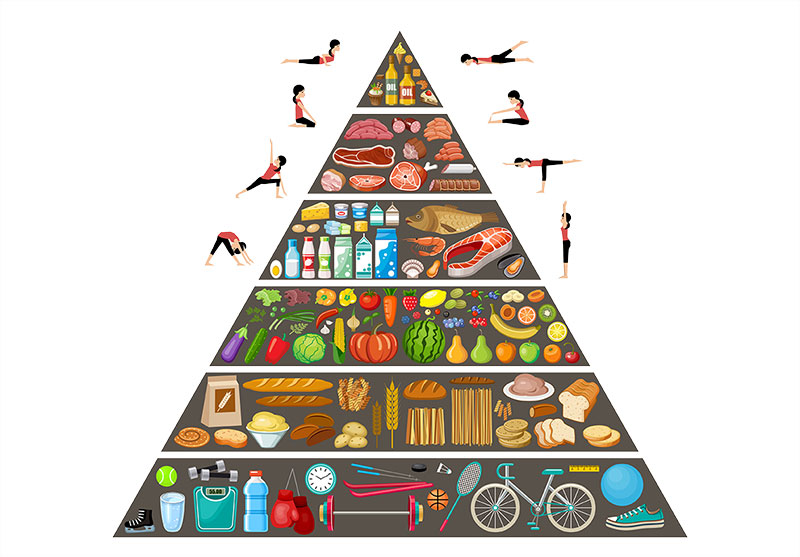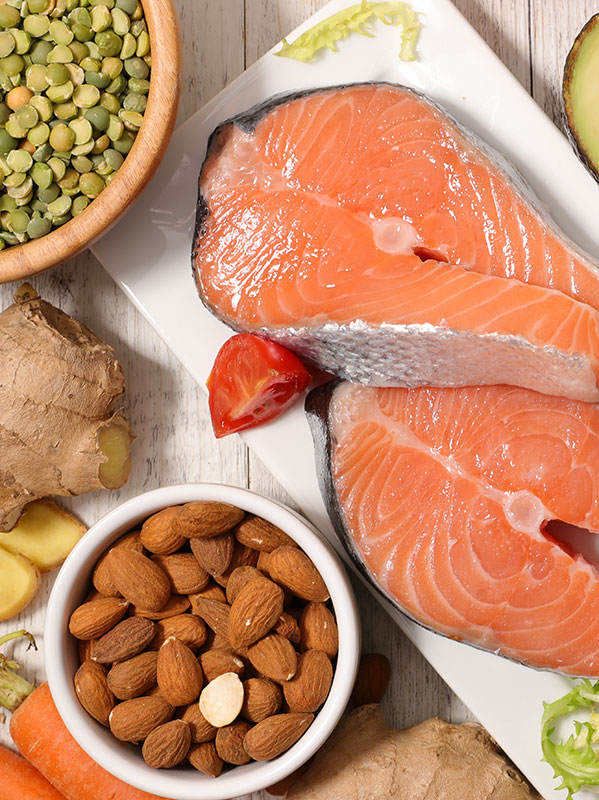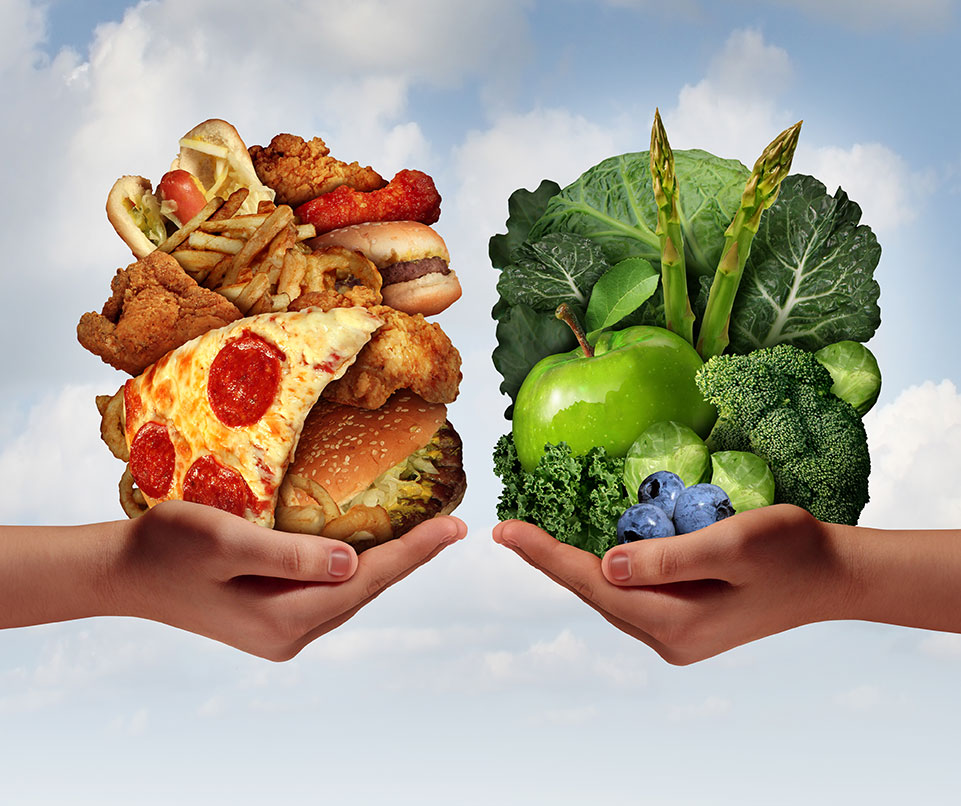
You can burn the fat in the kitchen and on the treadmill
Regardless of whether your goal is to build muscle mass, change body proportions, or reduction, every trainer will tell you something like: “70% of success depends on the diet”. However, different diets bring different effects. It turns out that not every diet may be suitable for you.
Diet plan taken from the Internet or a friend from work will not necessarily go hand in hand with what you want to achieve. This means that there is no universal diet, therefore the trainer will not pull out a random piece of paper from a drawer as it were a lottery.If it is just a fight with extra kilograms why you want to buy a membership in a fitness club, start by consulting the trainer. A good trainer will show you the path leading directly to this goal and, by the way, he will overturn the reduction myths.
Dietary mythology:
1. If I eat more often, I will put on weight
Most of us still live with such conviction. We think that a large amount of food is synonymous with a large body mass. Ironically, people who struggle with overweight usually eat rarely and their meals are unhealthy.
Imagine a situation in which a person with a significant overweight, signs up to a fitness club. A strong resolution to work on the body and claims about determination is the first step in the fight against kilograms. During the consultation, it appears that up to now, that person has consumed up to 3 meals a day. Usually, it was bread with cheese for breakfast, boiled potatoes or French fries with a piece of meat for dinner. Sometimes managed to eat a sandwich for supper. During the day there were also snacks, like chips, or a bar.

It is clear, that the amount of protein in the diet is appallingly low. Another mistake, irregular meals and products that are a source of carbohydrates are poor in quality.
And suddenly such a person hears from the trainer: you must eat twice as many meals, in each should be protein (eg meat, fish, eggs, leguminous plants, cottage cheese), throw out simple sugars from the diet.
It is hardly surprising that at this moment a potential client looks at the trainer as if he's crazy. After all, he came to lose weight, and he just heard that he must eat a lot more. It seems illogical. A defensive mechanism is activated in the head. People struggling with overweight are often looking for excuses for poor quality meals in their small amount.
Unfortunately, you cannot fool the body. If you want to boost the metabolism, you must eat regularly and take products that will increase it. This is the only way for the reduction to proceed properly, without worrying that the obtained effects will be temporary.
2. Do not eat after 18:00, because your metabolism will slow down at night
Of course, it will slow down a little. The night is for the body to rest, to regenerate, so it must slow down. However, I cannot imagine the situation in which I go to sleep after midnight, and the last meal I eat at 18:00. So, since the morning, I've been working hard to boost my metabolism, so I could starve myself from 18:00. And what if I do a workout at 19:20?

First of all, after training you always have to eat a wholesome meal. Secondly, the last meal without conscience you can eat 2 hours before bedtime. So, let's think about what happens when we limit the number of calories we supply and reduce the number of meals in our menu. Since the more often we eat the faster the metabolism is, it is clear that in the case of restricting meals metabolism will start to slow down. At this point, cortisol is released, i.e. stress hormone. The increase in its level, as the name suggests, is caused by stress. It may be inflammation, stress at work, sleep deprivation, or maybe just hunger strike. Cortisol increases blood glucose as well as the release of amino acids from tissues and slows their absorption by skeletal muscles. It is also responsible for the characteristic distribution of adipose tissue: abdominal obesity, the so-called buffalo hump and round face. Cortisol also has many good functions for the body. It has anti-inflammatory effects and its level increases in the morning, which helps us to wake up.
3. No diet will help, because I have bad genes
Bad genes? And what does it mean? When I studied biology, we had a subject with the grateful name "mutations". They showed us snakes with two heads, sheep with six legs and many other natural curiosities. Those were bad genes. I once heard from one of my pupils that her entire family is overweight, so she also has poor genetics. Of course, not everyone is just as easy to achieve the dream body. However, you cannot dump everything on genes. This is unfortunately a very common excuse and justification for inactivity and bad eating habits. Perhaps not genes are guilty but bad habits that have been preserved since childhood?
Do you still think that dieting by hunger is better than a well-performed reduction? Remember that the starved body will use every opportunity to put aside energy reserves in the form of fat. All you must do is let go of the "diet" for a bit and the weight will jump up again. So, to keep it at a satisfactory level, eat rationally. Also remember that you will not boost the metabolism in a week or two. You need time for that. However, it works both ways. If you've increase it, it's not so easy to stop it. Even if the cheat-meal happens occasionally you will not have to deal with the yo-yo effect.

It’s all in your head
It is understandable that it is not easy to change the way of thinking for people who for years have lived in the belief that overweight is the result of eating too many meals or poor genetics. I will suggest how to do it. Look at trainers and other physically active people. Most of them eat at least 5 meals a day... They just know what to eat to be healthy and keep the body in good shape. It is not secret knowledge reserved for a selected group of people. Calypso Fitness trainers will be happy to share it.
Being overweight can also be caused by health problems. So, when you get to the trainer, do not forget to tell him about it. The trainer may also ask you to do some tests, which will be helpful in planning a menu and workout dedicated for you.
Remember two things: the trainer will give you the tools to perform a correct and healthy reduction. He will support and motivate you, but he will not do the training for you and he will not keep a diet for you.

Once you've decided on this kind of help, know that without following the hints and letting go of training, you do not cheat the coach just yourself.




